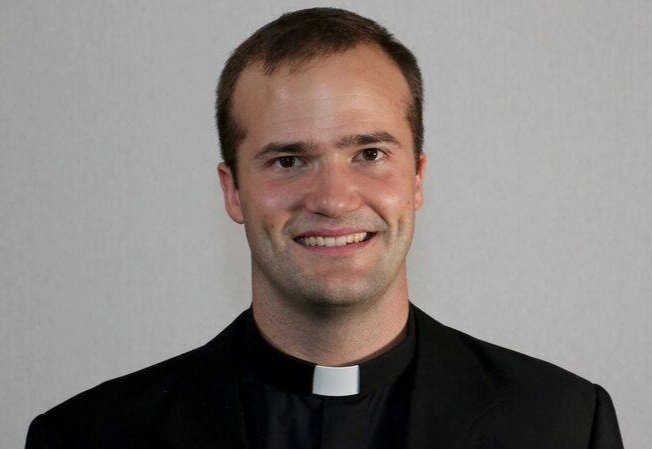COMMENTARY: The value of human life
April 29, 2022 | By Rev. Matthew RenschWorthless. Meaningless. Useless. These are some of the most stinging insults possible. Three weeks ago, an opinion piece raised this theme in my mind. The piece explained proposed updates to Act 39, the 2013 law concerning medical aid in dying, known also as physician-assisted suicide. The updates (bill S.74 signed into law last week by Gov. Phil Scott) need not delay us here. My grave misgivings and objections regard the overall endorsement of the practice.
Of course, I understand the appeal. I get where the lawmakers are coming from. Assisted suicide can avoid suffering. Absent coercion, it enacts the choice of the patient. The numbers of patients choosing suicide are rather low. Overall, it seems to present a humane, compassionate face. Nevertheless, my misgivings persist. Do these benefits justify the practice? I’m not convinced.
First, with modern palliative care, how much suffering is avoided? More importantly, we must ask whether this path to avoid suffering is a good one. Not every path to avoid suffering is good. (Use your imagination). Could this one too be a bad one?
Second, enabling a patient’s choice does not guarantee right practice. Many adult children work hard to dissuade their elderly parents from harmful ideas. Some ideas are harmful. Is this one of them?
Regarding numbers, it seems that the author herself has misgivings. “Currently, a very small number of Vermont physicians assist individuals through this process and only one pharmacy participates. And as noted above, very few people have availed themselves of this process.” My question is: So? If assisted suicide is a good thing, why are we so anxious about the numbers? If it is a liberation, why is its rarity such a relief? Overall then, the reasons in favor do not appear compelling.
Besides these misgivings, there is a more serious objection, harkening to my opening. An assisted suicide law, however one splices it, expresses the view: “We agree. At this point, your life is worthless.” Or again, “Towards the end and in suffering, you are better off dead.” And that is a nihilistic stance: to hold that human life is not intrinsically valuable, but only happens to have value because of what you can do, or what you can contribute, or how much you can enjoy, or … anything but because of you. Your value, just as you, drops to zero.
A law allowing suicide, permitting it, countenancing it, ultimately negates the value of human life simply as human. You must prove your worth.
Remember the horror we all felt a few years ago, when young Michelle Carter encouraged her boyfriend, Conrad Roy III, to commit suicide? How can we be horrified with what she did, if we are okay with physician-assisted suicide? Who are we to insist that Conrad’s life was meaningful and his death a tragedy? Perhaps some lives are meaningless, and his was one of them. Once we admit that some human lives are useless, can you reasonably critique anyone’s suicidality?
No. Either human life is intrinsically valuable, or it is not. Assisted suicide denies its intrinsic value. Much more sane, humane, and compassionate is to recognize the value of human life, full stop.
From a religious perspective
The comments above are made simply as a citizen. They appeal to no faith or religion. They are concerns understandable by any thinking person. There is no premise an atheist could not understand. Let no one, then, raise the specter of religious imposition.
What follows here, however, is made as a Catholic priest: the Catholic Church, understanding the divine spark in each individual, insists on the value of every human life just as such. It repudiates any unjust attack on human life, even a self-inflicted attack. Human life, with its immortal soul, is a unique good. To attack and kill it is wicked, and leads to hell.
Further, we follow a Lord who conquered suffering and death. He did not run or hide. He showed us that suffering is redemptive, that suffering borne patiently leads to the resurrection. A Christian may shrink from pain, but he or she knows that it will not triumph. Pain cannot rob us of who we are, our value, our meaning. Christianity recognizes that the greatest heroes of humanity were men and women willing to suffer for what is true and right.
Let there be no doubt, then, that this law not only strikes at the root of human dignity, but is profoundly anti-Christian as well.
Rev. Matthew Rensch
Rev. Matthew Rensch is pastor of the Roman Catholic communities of Waterbury, Moretown and Waitsfield.

